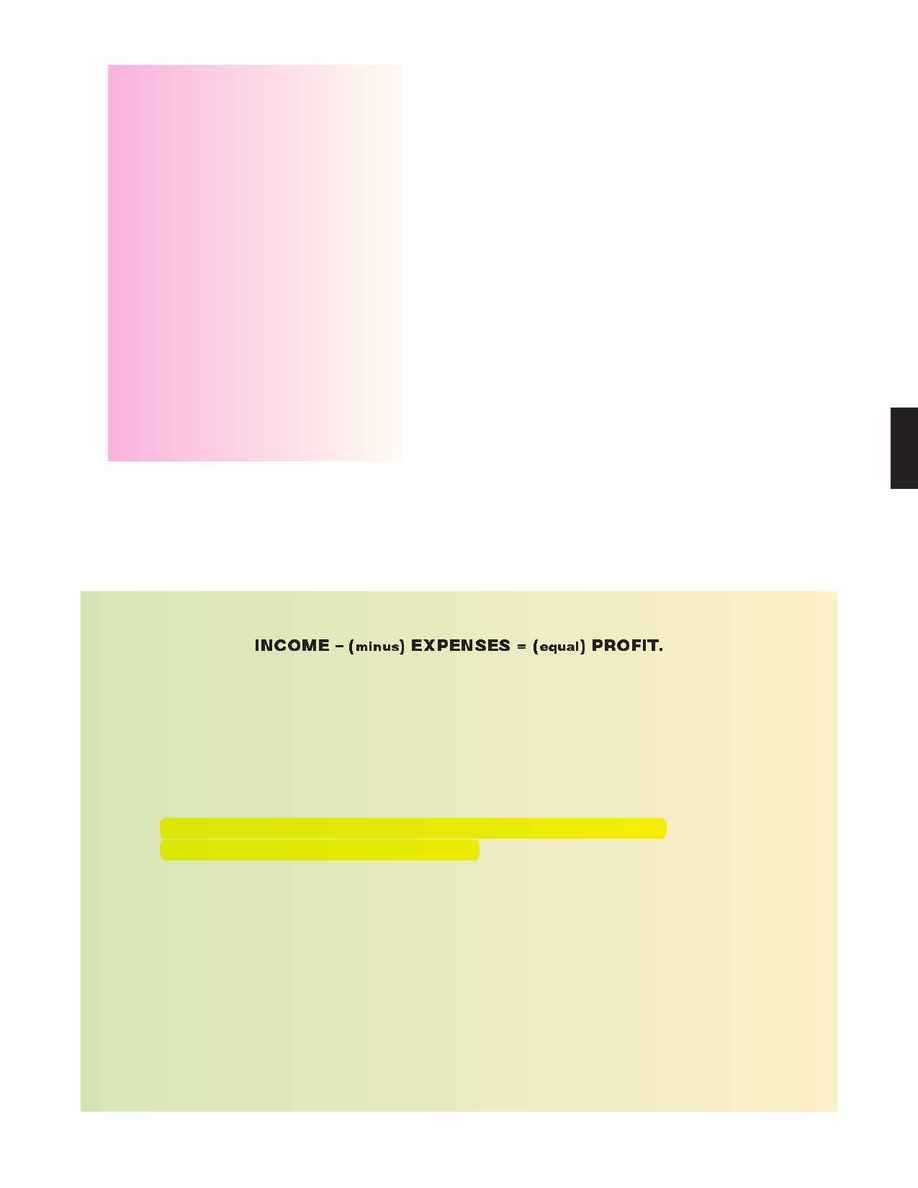
Operating Expense refers to all the costs incurred in
running the salon each day.
If the salon's income is
greater than the operating expense, the salon is
operating at a profit. If the operating expense is
greater than the income, the salon is operating at
a loss.
The salon may operate at a loss, as clientele
develops, during the first few weeks, months and even
years it is open. Your accountant should help you
take that fact into consideration when your initial
financing is arranged.
If you make a profit, you pay a percentage of that
profit to the federal, state and local governments. If
you suffer a loss, you receive a tax credit (pay little or
no tax). You can see that careful planning and con-
trol of expenses are essential.
Careful recordkeeping is required by law. It is wise to keep all records of your daily sales
and service for 5 to 7 years. If you are audited by the IRS, these records are proof of your
income. Failure to keep records is against the law in most areas.
The average cost of operating a business (by percentage of income) breaks down as follows:
INCOME (
minus
) EXPENSES = (
equal
) PROFIT.
Compensation:
50 %
Salaries or commissions for yourself and your employees,
including payroll taxes
Rent:
12 %
Fixed or variable
Supplies:
5 %
Professional products used (consumption/consumable), retail products
sold and miscellaneous equipment and tools
Advertising:
3 %
Promotion of the salon
Utilities:
2 %
Water, electricity, gas, sanitation, phone
Insurance:
1.5 %
All types
Employee Benefits:
1.5 %
Education, paid vacations, pension plans or profit-sharing,
health insurance
161
6
SALON BUSINESS
Independent Contractor is an IRS
term that can be applied to stylists who
rent or lease styling stations from a
building owner. Rental or leasing fees
can vary, depending on urban or rural
location. The building owner provides
a location in which to work and pays
the utilities. The stylist (lessee) pro-
vides all professional supplies, a tele-
phone line and products for retail sale
to clients.
In this system, the stylist is considered
self-employed by the IRS. He/she
must report his/her income quarterly to
the government in the form of "self
employment taxes." There are no ben-
efits provided to the lessee by the salon
owner, other than a place to work.
